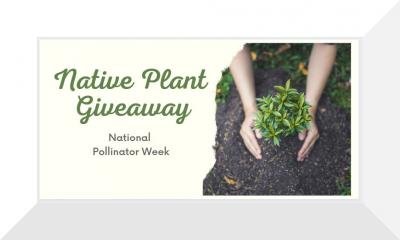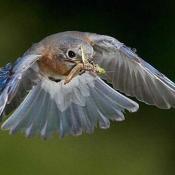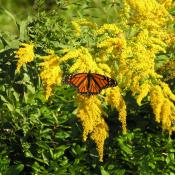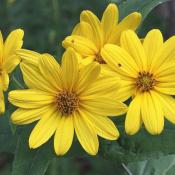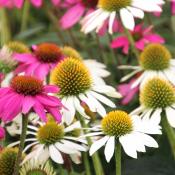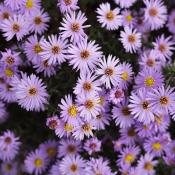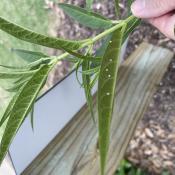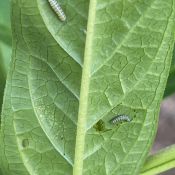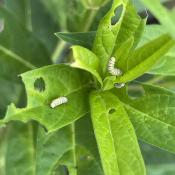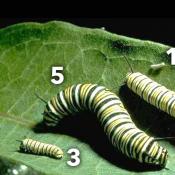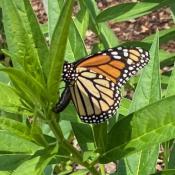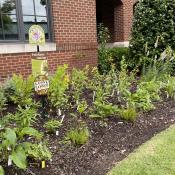Native Plant Giveaway for National Pollinator Week! Buzz on Down to City Hall!
In honor of National Pollinator week, and the city’s affiliation with Bee City USA, the city of Mountain Brook is hosting a native plant giveaway on Friday, June 23 from 10:00 a.m. to 2:00 p.m. at City Hall! Come on by and learn why native plants are imperative to our pollinators and to our Alabama ecosystem! Take a look at the newly established city hall pollinator garden and bee hotel, check out the baby monarch caterpillars who have taken up residence on our milkweed, and take home a native plant and some swag!
Why Native Plants?
Have you noticed fewer and fewer bees, butterflies, fireflies, and birds in your yard? This reduction in biodiversity is primarily due to habitat loss and the use of pesticides. Did you know it take 6,000-9,000 caterpillars to raise one clutch of baby birds? Did you know that the use of outdoor lighting inhibits fireflies from mating? Did you know that many flowering plants are “open-for-pollinating-business” to only a narrow selection of specific native pollinators? Did you know that 4 keystone native plants support 90% of the butterfly and moth species.
When you add native plants to your garden, you are directly benefiting the survival of native animal species, some of which may be threatened with extinction.
What are Keystone Plants?
Keystone plants are species that support a wide variety of butterflies, moths, and specialist bees. Simply put, they are the most productive plants for the most productive insects! Research has shown that a relatively few genera of native plants (keystone genera) form the backbone of local ecosystems, particularly in terms of producing the food that fuels insects. By planting just one of these keystone plants you can help restore native biodiversity in your own yard! Sadly, landscapes that do not contain one or more species of keystone genera will have failed food webs, even if the diversity of other plants is very high.
The concept of keystone species is built on the idea that there are certain plant species that when present in the environment can support hundreds of other species. These keystone plants have a disproportionally large effect on the abundance and diversity of other species, like insects, in an ecosystem.
There are four genera of keystone plants that will help support your local ecosystem if you can squeeze them into your garden, and they will all be available at the city’s native plant giveaway!
Goldenrod (…this is not ragweed that causes seasonal allergies!)
The heavyweight champions for supporting primary consumers in the food web (insects). With over 100 species of caterpillars using goldenrod as host plants and over 40 species using the pollen, finding room for goldenrods in your garden should be a top priority.
Sunflower (…this isn’t the giant sunflower you planted as a kid.)
North America is home to over 50 species of native sunflower that support over 66 species of caterpillars that use them as host plants, and 50 specialist pollinators that use their pollen. If attracting insects wasn’t enough, the seeds are high in the fats and proteins needed to feed migrating birds.
Coneflower
This cheery summer staple is a beloved wildflower across North America. The common black-eyed Susan brightens up our roadsides and is present in 48 states. Coneflower supports 20 species of caterpillars and 29 species of specialist pollinators.
Aster
Who doesn’t love a daisy-flowered aster blooming brightly on a fall day? Asters are an easy addition to the garden because we humans already love them and, conveniently, so do the pollinators! More than 100 species of caterpillars use asters as host plants and over 30 species of specialist pollinators prefer their pollen.
The Best Part?
These native plants are beautiful. There are species from these keystone genera that can work in sunny or shady locations, meaning there is a plant for everyone. Even if you have a small yard, or a place where you can grow a few potted plants, you can help support native pollinators!
Together we can regenerate biodiversity and ecosystem function, because every human being on this planet needs diverse highly productive ecosystems to survive!

